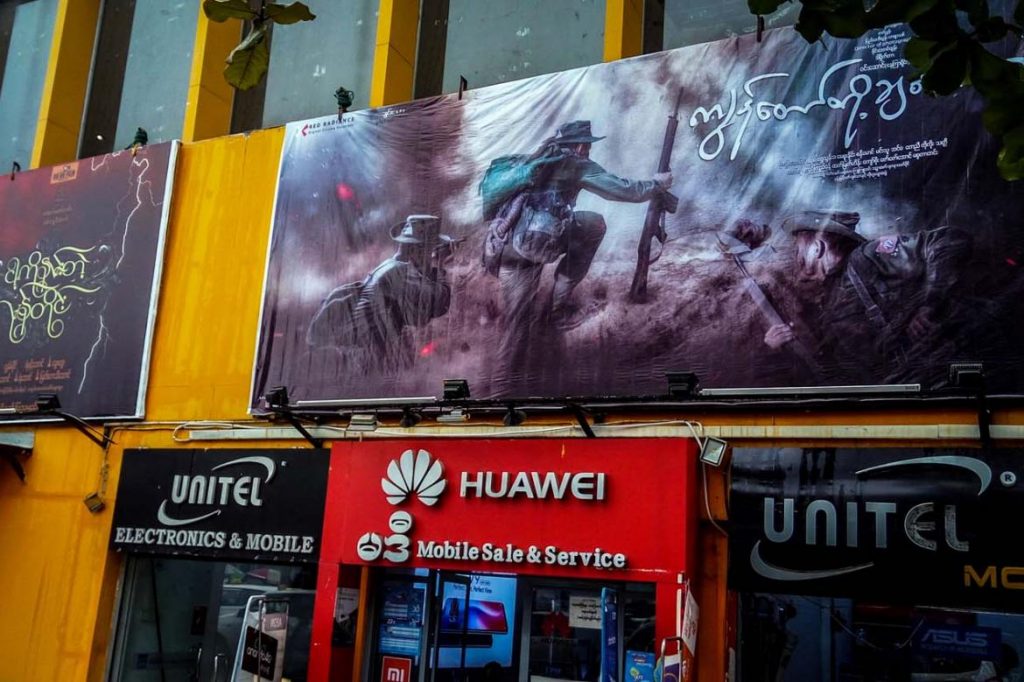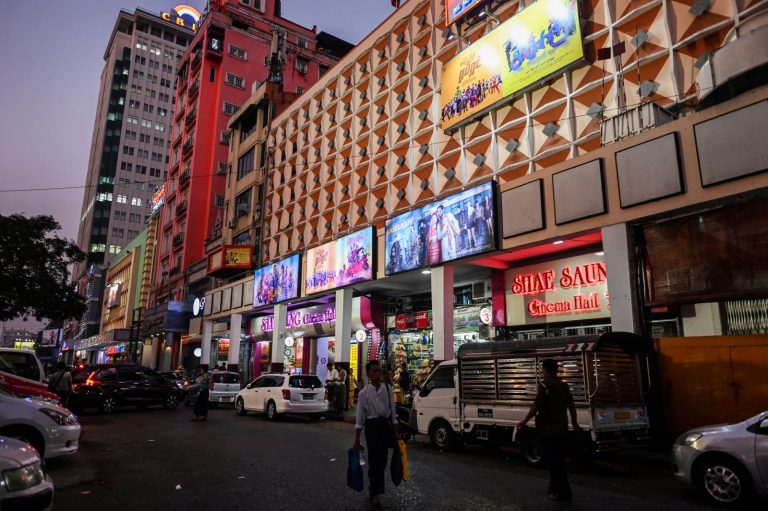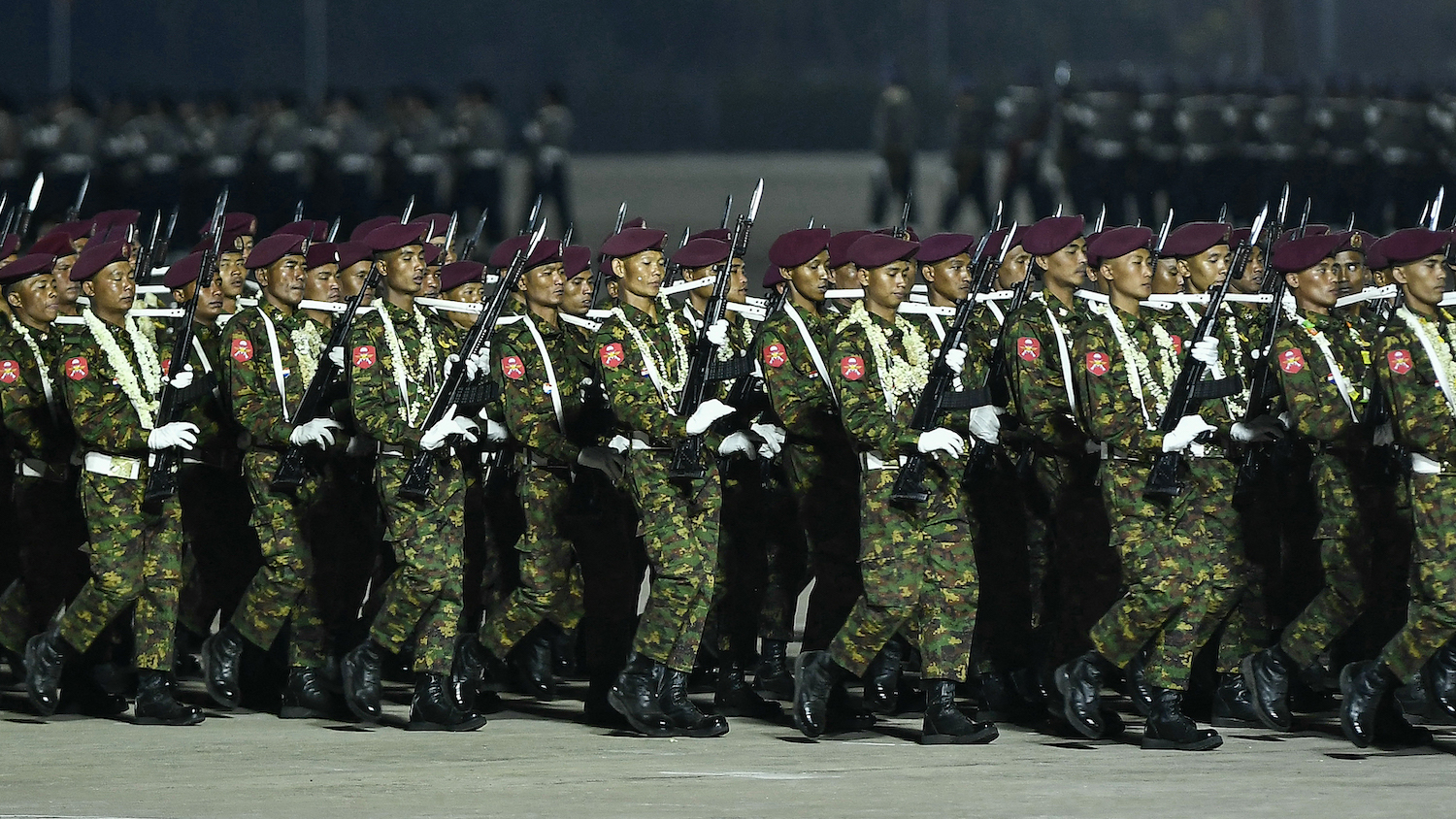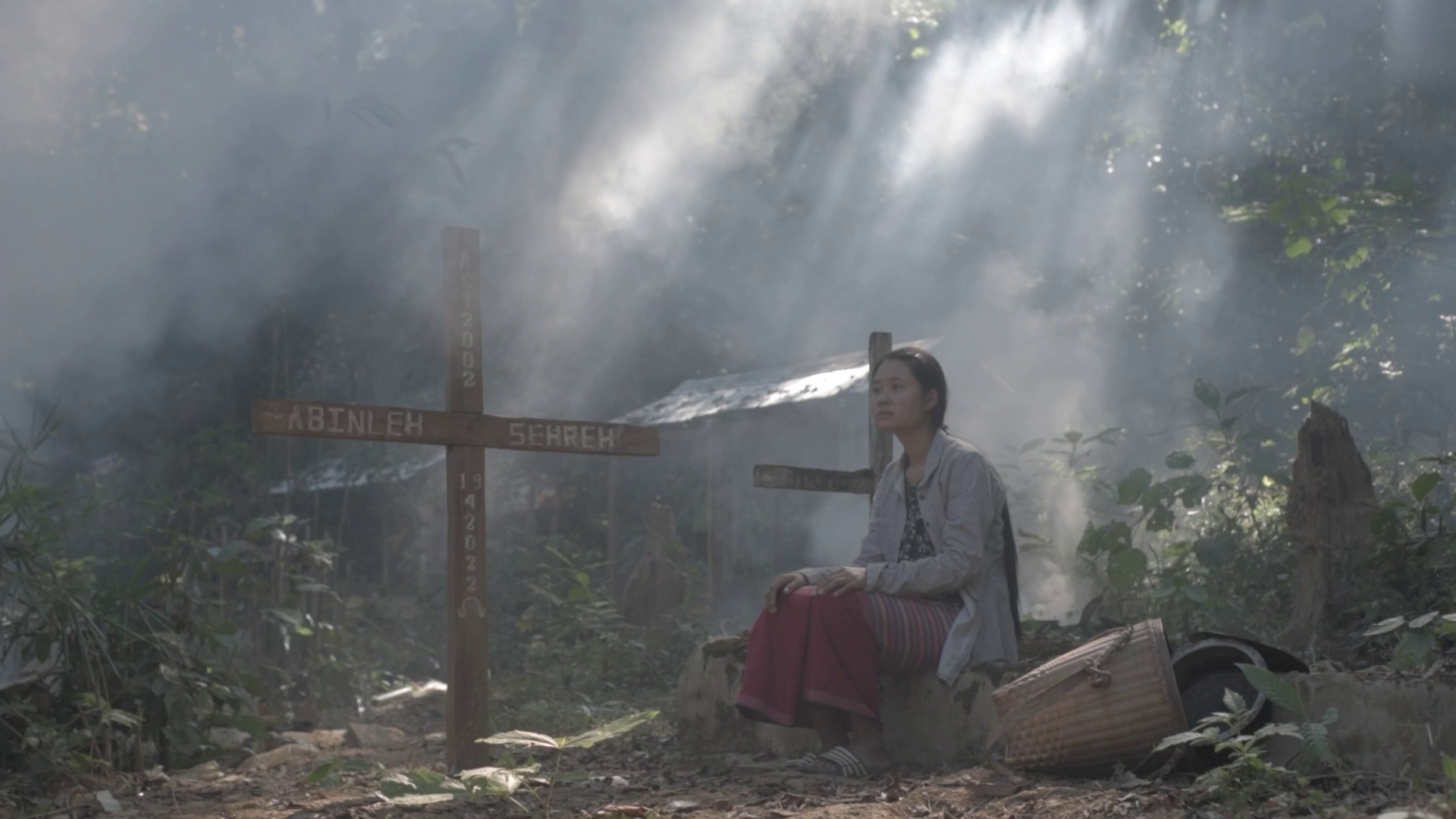The director of a new film about the Myanmar Army said he aims to document the life of soldiers, but critics say it is a piece of propaganda that seeks to glorify the Tatmadaw and could affect the peace process.
By KYAW LIN HTOON | FRONTIER
ON JUNE 15, a new movie was launched in Myanmar’s cinemas. “Kyuntawto Chitthaw” (Our Beloved) is a fast-paced drama that documents the life of a Tatmadaw soldier fighting against unnamed “insurgent groups”.
The film, which took two years to reach audiences, is directed by U Win Saung (Nay Kyar Yine), and is funded by two production houses, Chan Thar and Red Radiance.
The movie documents the life of Tatmadaw soldier, Sergeant Mya Toe, who is conflicted between what he regards as his duty to the country, and his love for a woman he met while serving in the army.
However, critics of the production say that it attempts to glorify the image of the Tatmadaw, especially at a time that it is facing criticism for its handling of the crisis in Rakhine State, and amid ongoing fighting in Kachin and Shan states.
Support more independent journalism like this. Sign up to be a Frontier member.
Student activist Ko Nay Aung Paing said the movie reminded him of the pro-military movies that were broadcast on state-run television during the years of junta rule.
“The quality of the film seems great, and it has used good visual effects,” he said. “But what it is saying about the military needs to be [honest], because the military is not at the level people want.”
Although he said he did not know what the filmmakers’ motives were, he said the movie could impact on the peace process and national reconciliation.
However, Win Saung denied that the movie was pro-Tatmadaw propaganda. He said it was privately funded, and that his motivation behind making it was to document what life is like for the country’s soldiers.
“We weren’t aiming to flatter the army in a servile way by creating this. This is just something I wanted to create,” he said.
The movie’s production did have input from the military, however.
Before it hit the theatres, Win Saung had to submit the movie to the Myanmar Motion Picture Development Department, under the Ministry of Information, as well as the Ministry of Defence’s Directorate of Public Relations.
Win Saung said that after the movie was approved, the military provided help, including training actors, supplying props and advising on film locations.
One of the film’s supporters is U Hla Swe, a former soldier and Union Solidarity and Development Party MP. A proud supporter of the army, Hla Swe is known to many in Myanmar as “Bullet” after saying that if an ethnic armed group refused the “golden hand” of peace, then they would get a bullet instead.
He said that in countries where national service is mandatory, the population was sympathetic to the lives of soldiers.
“Since we have no such law for compulsory military service, we have to rely on private support,” he said.
Hla Swe said watching the film reminded him of an episode he had seen of the television show “Britain’s Got Talent”, in which a group of girls sing pro-military songs in the presence of war veterans.
Hla Swe also dismissed critics of the film as being “insurgents”.
“Of course they don’t like it. But those who have patriotism in their heart will like this movie,” he said.
Pro-peace activists disagree, and say the movie could have a negative impact on the country’s peace process.
U Saw Min Naing, a peace activist, said the movie is an example of sensationalising the views of one side, in this case the Tatmadaw.
The son of a soldier, and an ethnic Karen, Saw Min Naing said that the movie comes at a time when people are still “sensitive” about the Tatmadaw’s role in Myanmar.
“Each side is fighting for justice and equality,” he said. “Some like us may fight in the form of activism, some may fight with arms for their own rights. So, such kind of films should be carefully considered and not be used as one-sided propaganda.”







